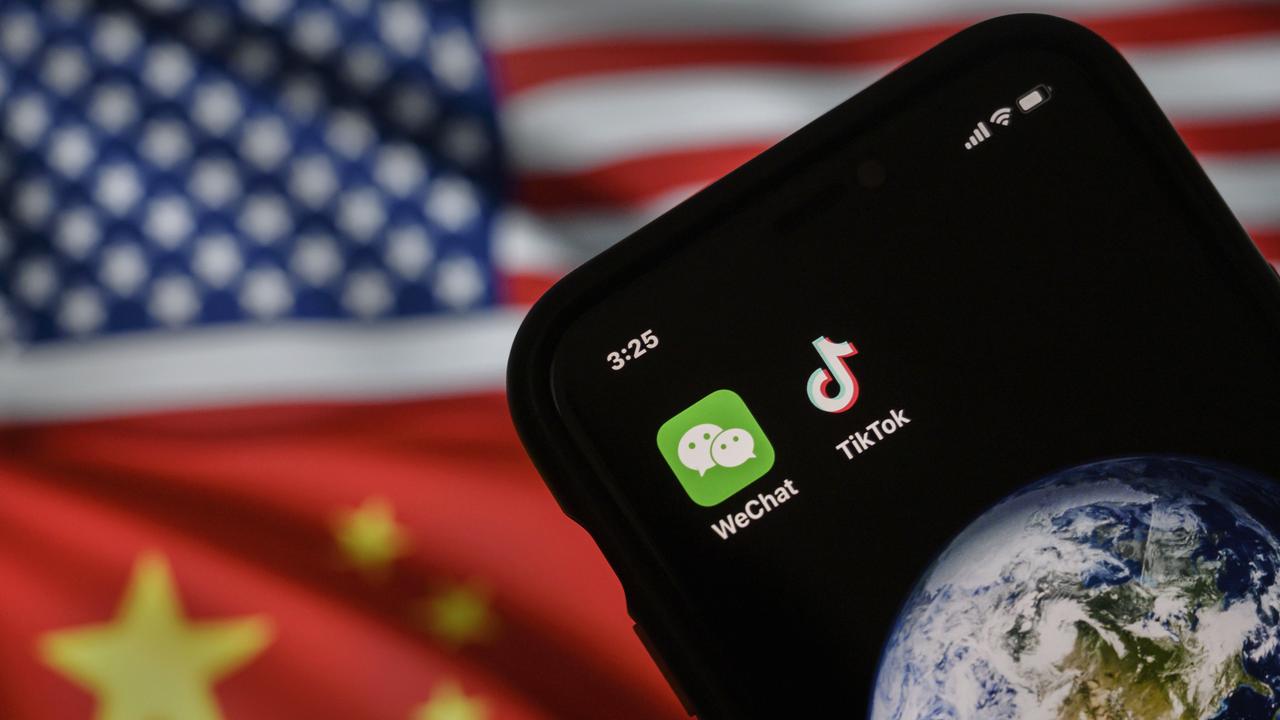WeChat and Tiktok: Social media key Beijing weapon in war of information
In early March, soon after Vladimir Putin launched his “special military operation” in Ukraine, a friend invited me to join a WeChat group of mainly Chinese migrants in Australia. “They are talking about the war. You might be interested,” she said.
What I didn’t expect was to find they were discussing it exclusively from the perspective of the Russians. They shared Chinese state media and social media posts wholly sourced from Russian propaganda. There were claims the “Nazi Ukrainian” government committed genocide in Donbas, President Volodomyr Zelensky had escaped to the US with stolen billions, NATO had provoked Moscow into self-defence. Amazed by how these migrants were cocooned in a Russian disinformation bubble I took screenshots and posted them on Twitter with translations, masking any identifiable information.
The tweets coincided with efforts by a group of overseas Chinese volunteers to highlight misogynist, nationalist, xenophobic and even violent posts allowed on China’s highly censored social media in what was named “The Great Translation Movement”. Naturally, Chinese state media was not amused. Dozens of articles were churned out lambasting us as “Chinese-speaking bad-faith actors” and agents of the CIA plotting to smear our former homeland. While the cheque from Langley still hasn’t arrived, my concern about WeChat’s malign influence on the Chinese-Australian community grows.
WeChat was created in 2011 in China’s tech hub of Shenzhen as a simple messaging and photo sharing app. It has become the dominant app in China, combining networking, news, entertainment, banking and e-commerce. Life in China is virtually impossible without the app, and it is also the most popular social media app among Australia’s 650,000 Chinese migrants. It is the most convenient way for them to stay connected to families and friends back in China. But, like every media outlet and social media platform in China, WeChat is under strict censorship by the Chinese Communist Party. No criticism of the party leadership is allowed. No discussion of sensitive political topics, such as Xinjiang or the 1989 student protest, can take place. Even the use of words such as Xi Jinping, democracy or Tiananmen can trigger interventions from web monitors.
Despite Beijing’s official claim of “neutrality”, China’s state media has been pumping out pro-Moscow propaganda since the start of the Ukraine war. While Chinese state propaganda reaches migrants unimpeded through WeChat and the web, Beijing prohibits access to many Western news websites, in addition to blocking Western social media sites. Most Australian media sites are banned too, including The Australian, the ABC, Sydney Morning Herald and Daily Telegraph. While Chinese state media outlets continue to operate in Australia, there has been no Australian journalist on the ground in China since September 2020.
We think the demise of the Soviet Union proved the ultimate failure of communist ideology, but the main lesson the CCP drew was to never repeat Mikhail Gorbachev’s weakness in the face of Western liberal values and his inability to control public opinion.
The internet briefly brought hope to end the monopoly on information by dictatorships. Bill Clinton once challenged Beijing’s ability to control the internet, comparing it to “nailing jello to the wall”. Yet nail it Xi did, with advanced technology and armies of human censors. We in the West pride ourselves on having a free and open society. To the Marxists-Leninists of the CCP, suppression of dissent and promotion of propaganda are matters of political life and death. We think we live in a marketplace of ideas. The CCP is not so naive. It treats it as an information war.
By building the Great Fire Wall from the global internet, and exploiting freedom of communication in the West with billions spent on external propaganda to enhance its “international discourse power”, China brings a bazooka to the ideology fight, while we debate whether to ban WeChat and Tiktok. Chinese state media operatives may insist they are real journalists but Xi himself couldn’t be more explicit: the role of Chinese media is to loyally serve the interest of the CCP. As state actors, their participation in our civil society should be regulated as all other areas of state relations, based on the fundamental diplomatic principle of reciprocity. Last June, the China Social Media Reciprocity Act was introduced in the US congress, intended to bar social media platforms from hosting accounts of Chinese government officials and state media outlets unless China lifts its prohibitions on Chinese citizens accessing content generated by US officials. Australia should liaise with the US and other like-minded nations to deny the privilege of reaching the Western audience by Chinese state media unless reciprocal access to the Chinese market can be established for Western media.
Han Yeng is a former Chinese junior diplomat living in Sydney.

No comments:
Post a Comment